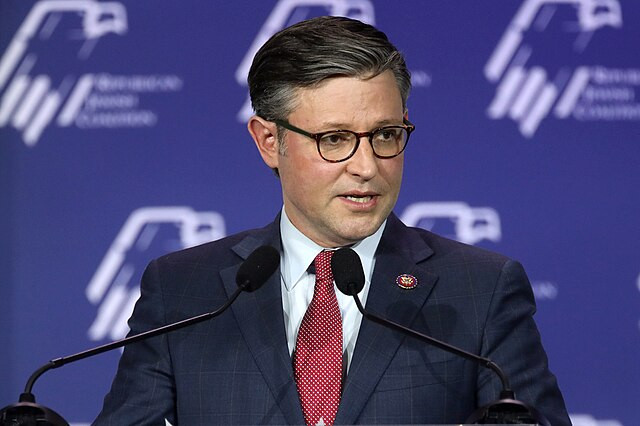House Speaker Mike Johnson has pledged "massive" healthcare reforms if Donald Trump is reelected, setting the stage for a renewed push to dismantle the Affordable Care Act (ACA), commonly known as Obamacare. Johnson's comments came during a rally in Pennsylvania, where he outlined Republicans' legislative priorities for a potential Trump administration in 2025. The remarks are a significant signal that repealing or overhauling the ACA remains a top priority for the GOP, even after years of failed attempts to dismantle the landmark healthcare law.
At a rally, Johnson responded to a question from the audience, asking, "No Obamacare?" by emphatically stating, "No Obamacare." He described the ACA as "deeply ingrained" but argued for "massive reform" to fix what he believes are its deficiencies. "Healthcare reform is going to be a big part of the agenda," Johnson added, hinting at a dramatic reshaping of U.S. healthcare if Republicans regain power.
This renewed focus on healthcare reform comes as Trump gears up for a potential return to the White House, with both parties making their final pitches to voters before Election Day. In contrast, Democrats, including Vice President Kamala Harris, are positioning themselves as defenders of the ACA. Harris has consistently polled better than Trump on healthcare issues in key battleground states, where healthcare ranks as one of the top concerns for voters. According to a Washington Post-Schar School poll, healthcare is the fourth most important issue for voters, trailing only the economy, inflation, and threats to democracy.
The ACA, which was passed in 2010, has provided health coverage to more than 20 million Americans and significantly reduced the uninsured rate. It also made it illegal for insurance companies to discriminate against people with pre-existing conditions, a key protection that Democrats argue must be preserved. Johnson's remarks about repealing Obamacare have reignited concerns among Democrats, who are now warning voters that millions could lose coverage or face higher costs if the ACA is repealed or significantly weakened.
Johnson did not offer specific details about what the GOP's healthcare plan would entail, but he noted that the party's Doctors Caucus, a group of Republican physicians in the House, has been working on potential legislative proposals. Johnson also alluded to broader "free market" reforms that would likely prioritize deregulation and consumer choice, a hallmark of previous Republican healthcare initiatives.
This isn't the first time Republicans have sought to repeal the ACA. In 2017, during Trump's first term, the GOP came close to dismantling key parts of the law but failed after Sen. John McCain cast a decisive vote against the repeal effort. Since then, Republicans have largely shifted their focus to other issues, though the ACA remains a target for many conservatives.
Meanwhile, Trump has sought to assure voters that he won't eliminate the ACA entirely, despite his party's previous efforts. In a video posted to Truth Social earlier this year, Trump said, "We're not running to terminate the ACA," and instead emphasized plans to "make it much better, much stronger." However, his administration's past efforts to undermine the ACA, such as removing the individual mandate, suggest that significant changes could still be on the horizon if he returns to the Oval Office.
Democrats have seized on Johnson's comments to rally their base. House Minority Leader Hakeem Jeffries criticized the GOP's plan during a recent campaign stop, warning that Republicans are still intent on repealing Obamacare. "If Roe v. Wade can fall, then anything can fall," Jeffries said, drawing a parallel between the Supreme Court's decision to overturn federal abortion protections and the potential threat to healthcare coverage.
Healthcare has not been a central theme of the 2024 campaign compared to previous election cycles, largely because of the ACA's enduring popularity. Key provisions, such as protections for those with pre-existing conditions, have bipartisan support. However, Johnson's remarks suggest that Republicans are prepared to reignite the healthcare debate if they regain control of the White House and Congress.






